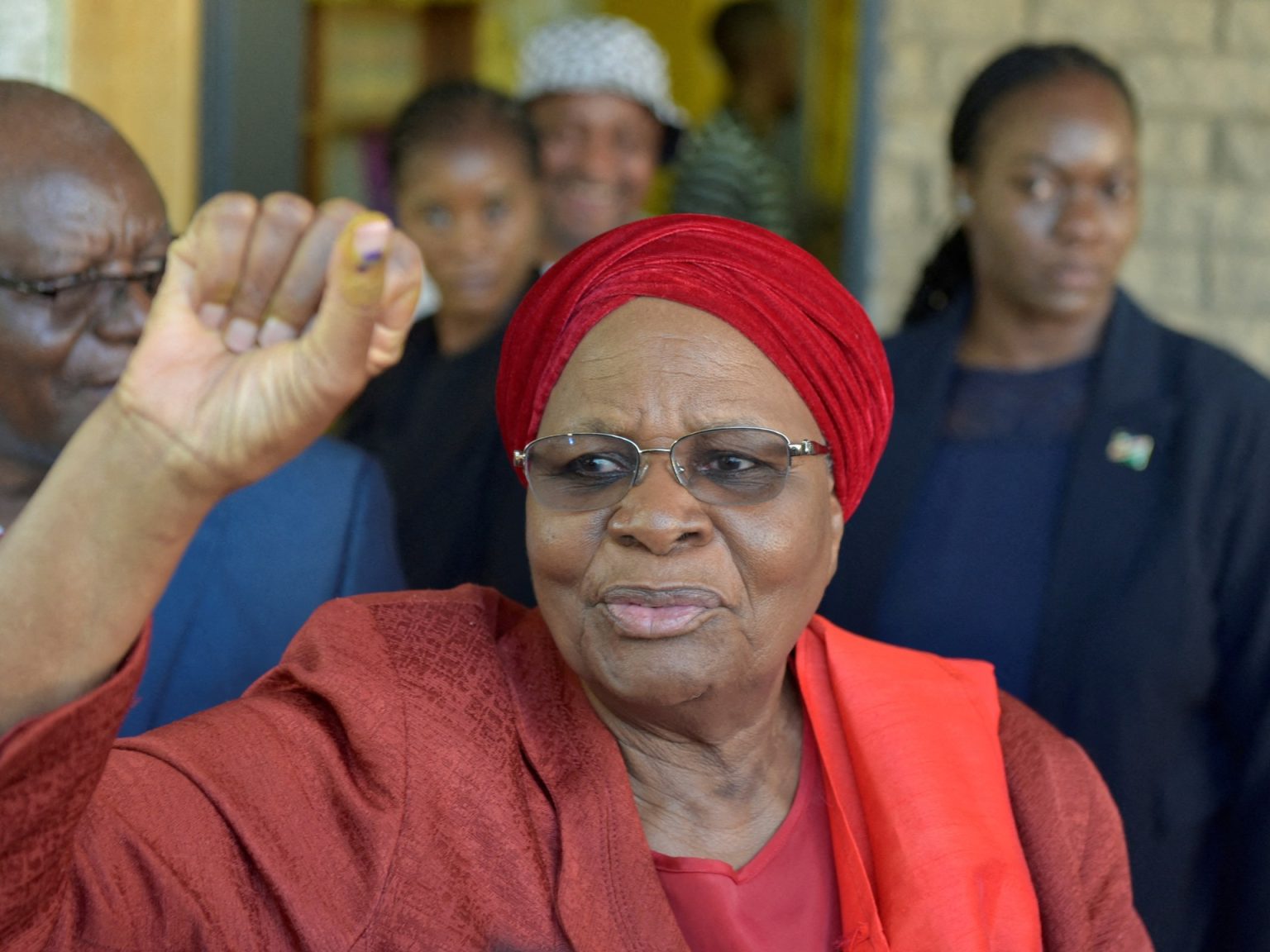Netumbo Nandi-Ndaitwah, a prominent candidate from the ruling South West Africa People’s Organisation (SWAPO), is on track to become Namibia’s first female president following a contested election. As of the latest reports, she holds a significant lead, capturing 54.82 percent of the votes counted so far, which amounts to 65.57 percent of the total expected. With 73 percent voter participation from approximately 1.5 million registered voters, her main opposition, the Independent Patriots for Change (IPC) led by Panduleni Itula, trails far behind at 28 percent. However, if Nandi-Ndaitwah fails to secure more than 50 percent of the overall votes, she may be forced into a run-off election, creating a potentially complex political scenario as the final results are awaited.
The elections, conducted on November 27, were marred by significant logistical issues that delayed results. Due to technical difficulties and a shortage of ballot papers, voting was extended for several days beyond the intended date. Initially, the election commission received considerable criticism as long queues at polling stations left many voters unable to cast their ballots on the first day. Some voters reportedly waited up to 12 hours, resulting in allegations from opposition parties of the election’s illegitimacy and challenges to the process itself. The extension raised concerns among opposition leaders who argued that it undermines the democratic process in a country otherwise known for its relatively stable electoral history since gaining independence from apartheid South Africa in 1990.
The political landscape in Namibia is characterized by discontent among young voters who face high unemployment rates and ongoing inequalities. Though SWAPO has been the dominant political force since independence, opposition parties have gained traction by addressing these persistent issues. The IPC and other opposition groups have claimed that the election was rife with “irregularities” and have vowed to contest the results in court, asserting that the elections cannot be deemed free, fair, or legitimate under the current circumstances. The leader of IPC, Panduleni Itula, has been vocal about the situation, advocating for a recognition of the governance flaws and a call for accountability in the electoral process.
Despite the serious accusations of illegitimacy from the opposition, the electoral commission announced an overall voter turnout of 73 percent, reflecting a high level of civic engagement among the population. This turnout is especially noteworthy in the context of the previous technical challenges faced during the election. The fact that only 79 of 121 constituencies have been officially reported creates an element of uncertainty about the final numbers, and it remains to be seen how this fallout will affect both the immediate election outcome and the long-term political climate in Namibia.
As Nandi-Ndaitwah remains the frontrunner, several opposition parties are mobilizing to contest the election’s legality, uniting in their calls for a judicial review of the election process. Figures such as McHenry Venaani from the Popular Democratic Movement are concerned about the implications of the election’s conduct on Namibia’s democratic reputation and future governance. Leaders are emphasizing the need for a fair political environment that serves not only the interests of those in power but also the wider electorate, including the disenfranchised populations who seek representation and opportunity in the upcoming leadership.
The current political climate in Namibia evinces a critical juncture in the nation’s history. The potential election of Netumbo Nandi-Ndaitwah as president could signal progressive change for gender representation in leadership roles; however, the shadow of electoral disputes looms large. The resolution of these challenges will be pivotal for the credibility of the electoral system and the functioning of democracy in Namibia. The outcome of this electoral cycle and subsequent legal battles will likely define the political landscape in the near future, either reinforcing the status quo or paving the way for significant transformation within the country’s governance structure.

